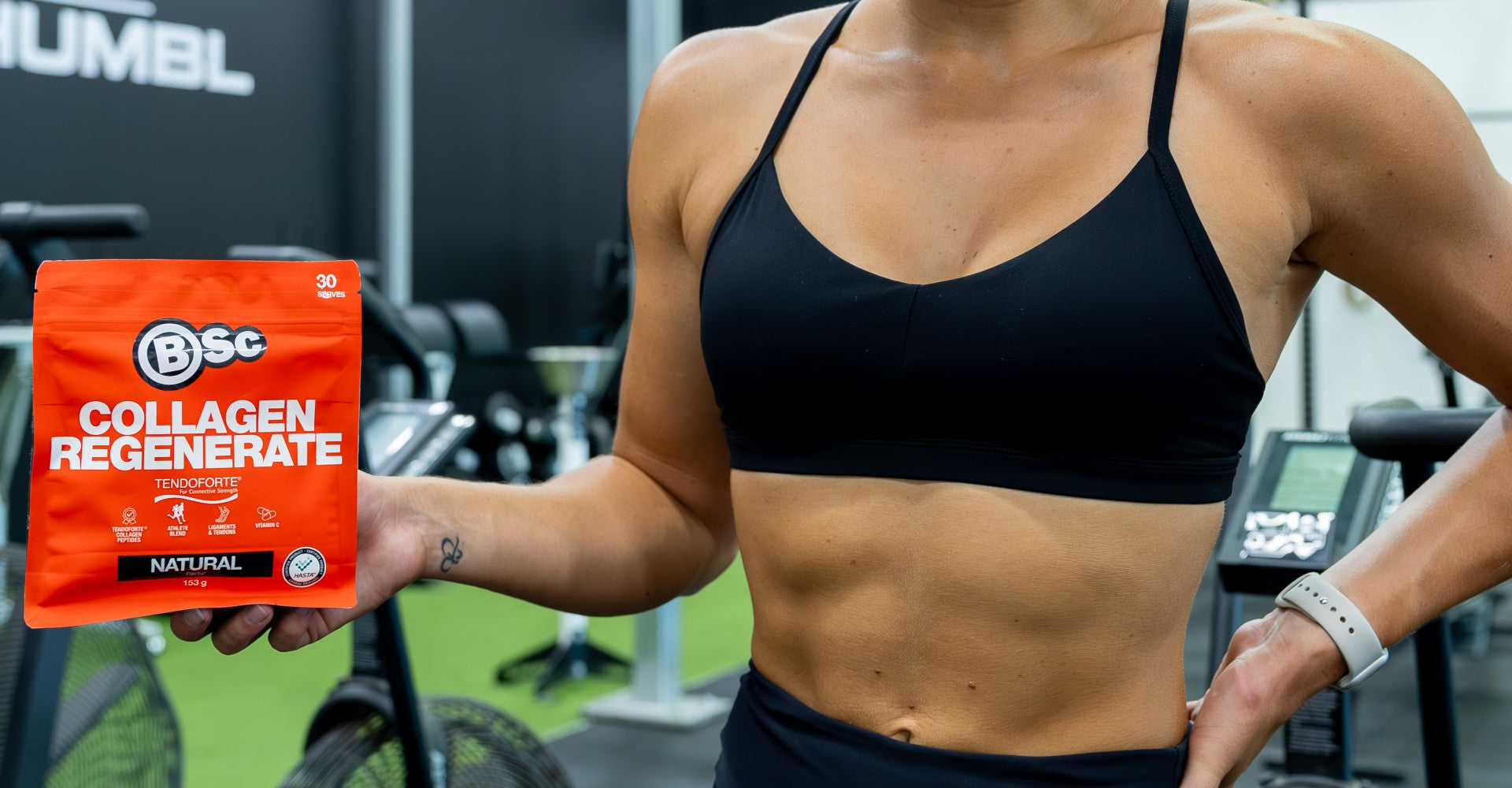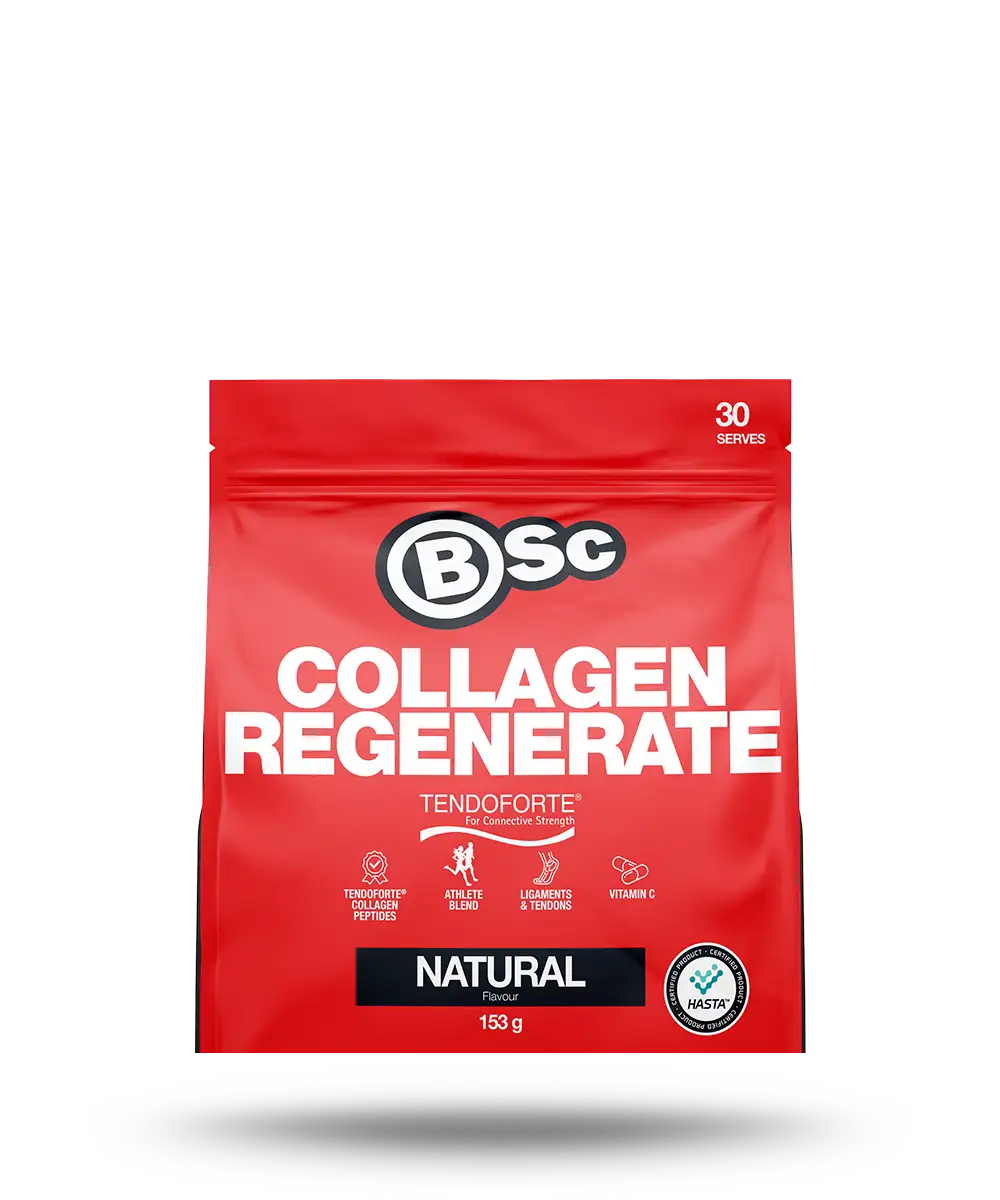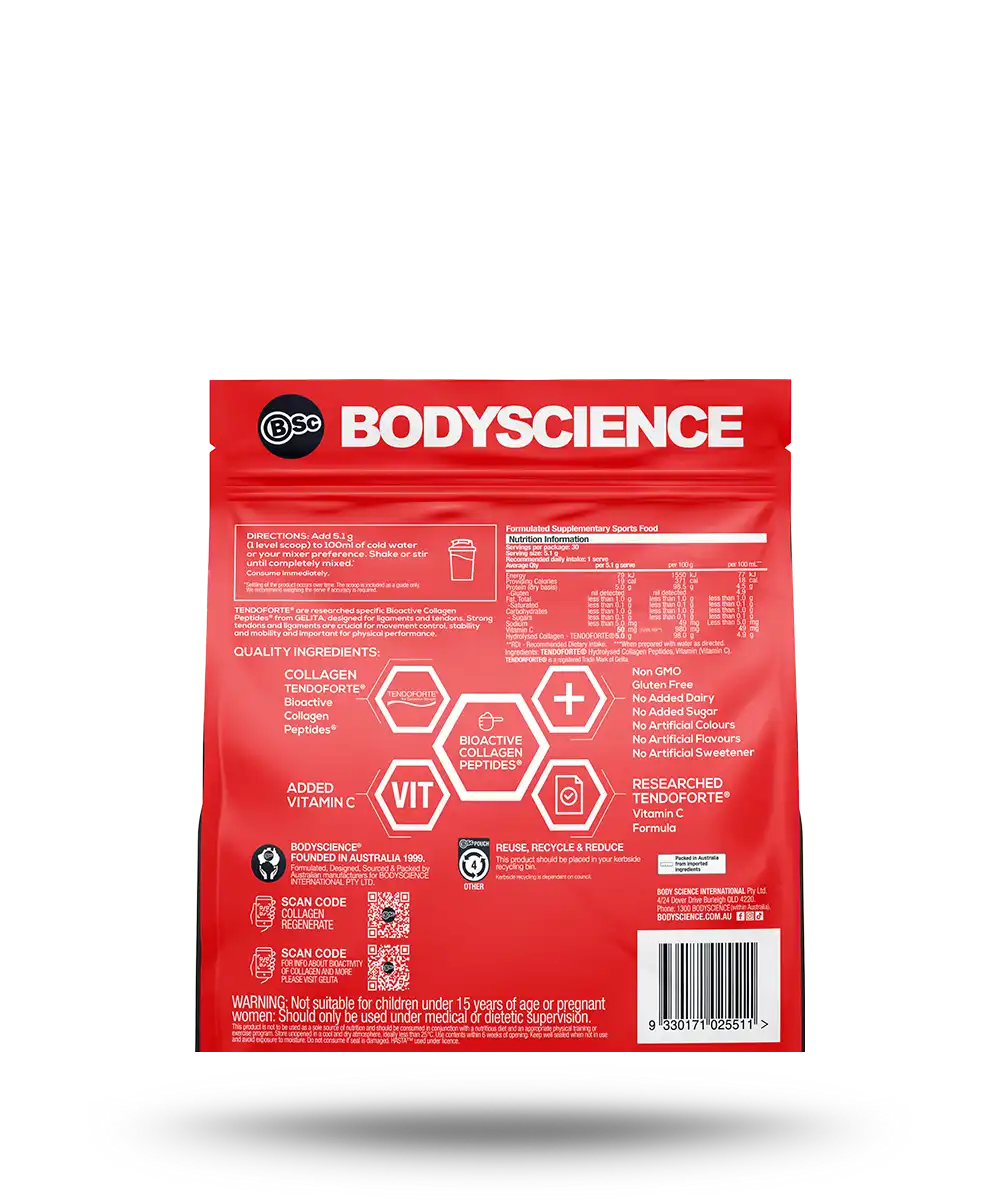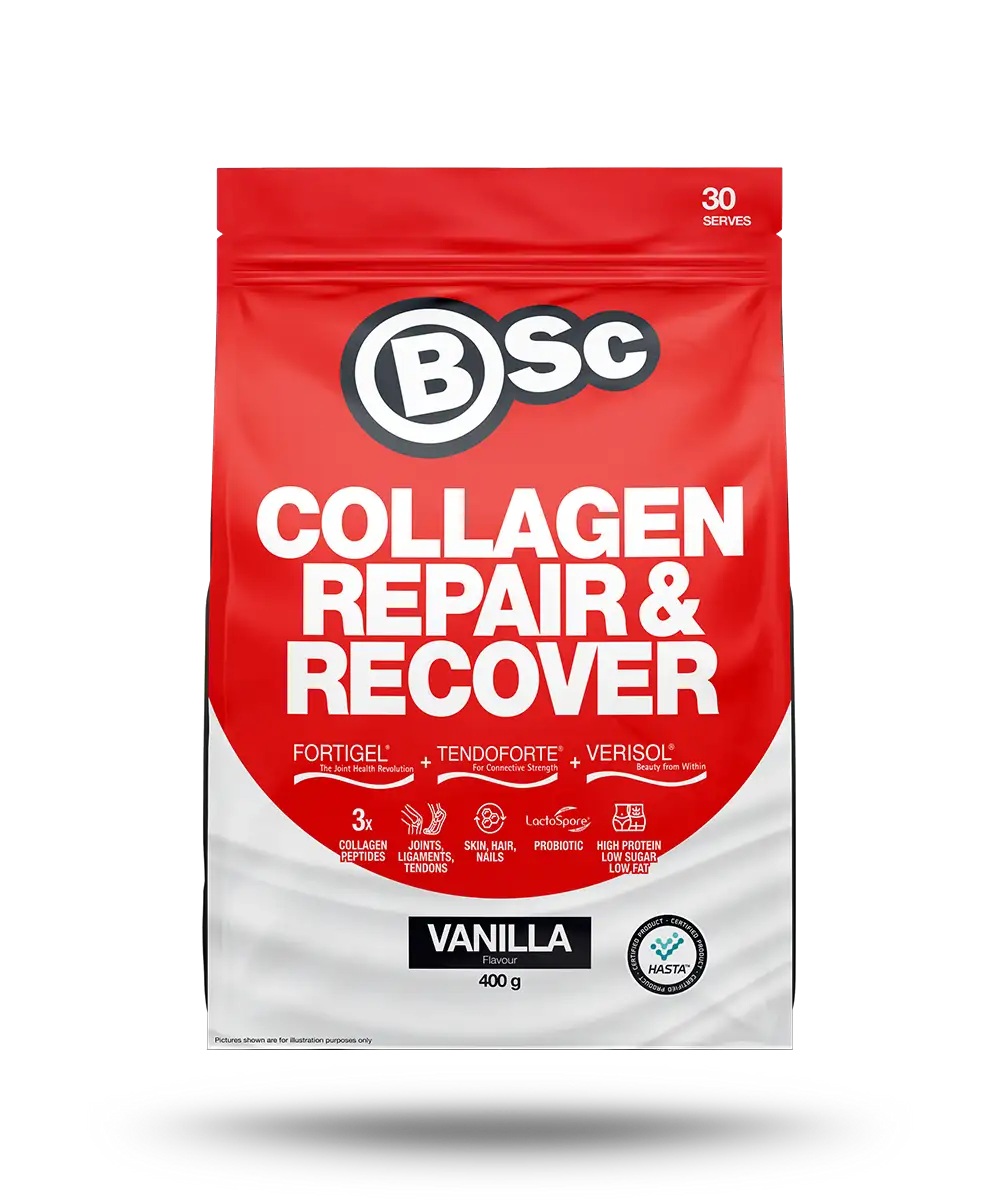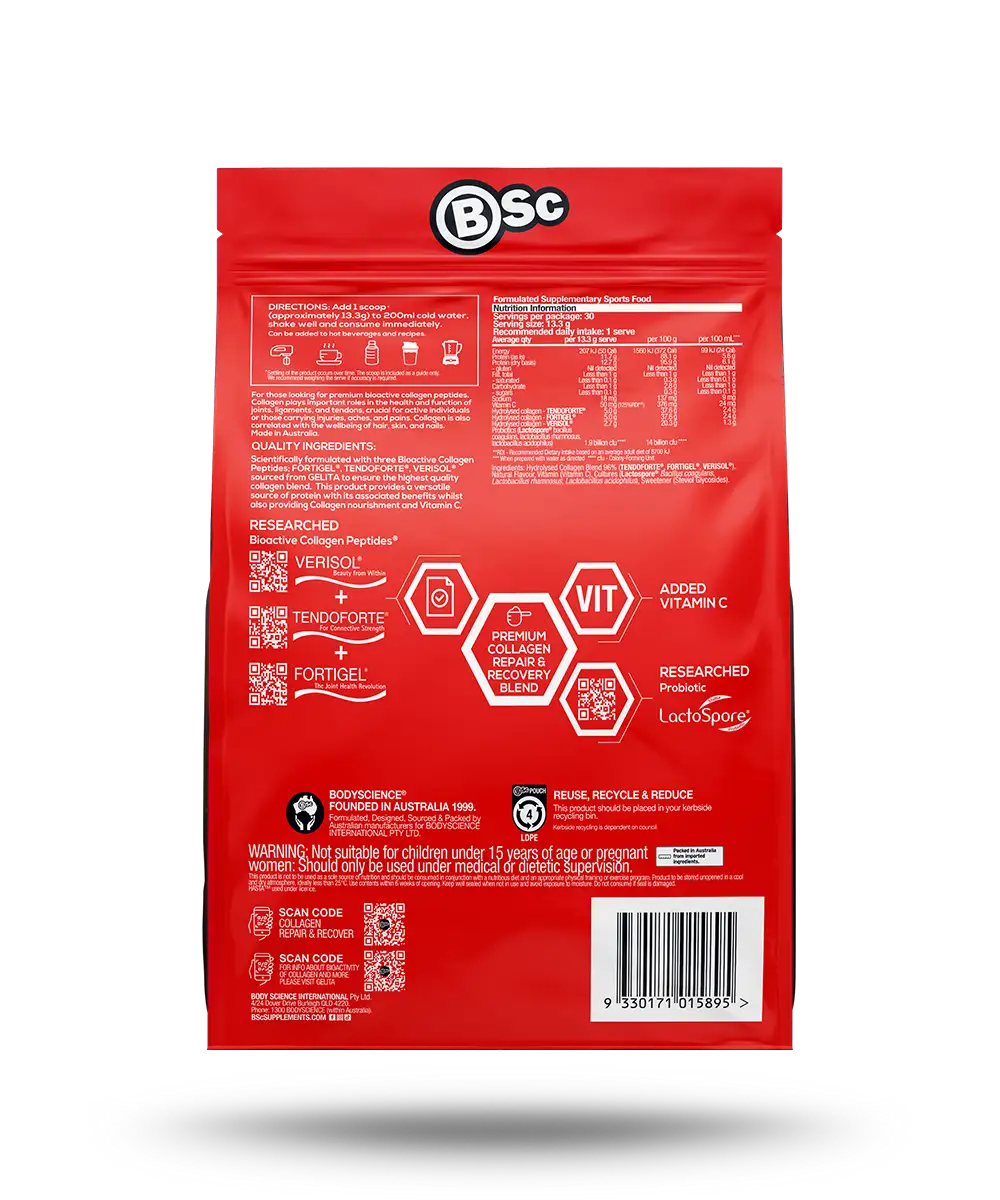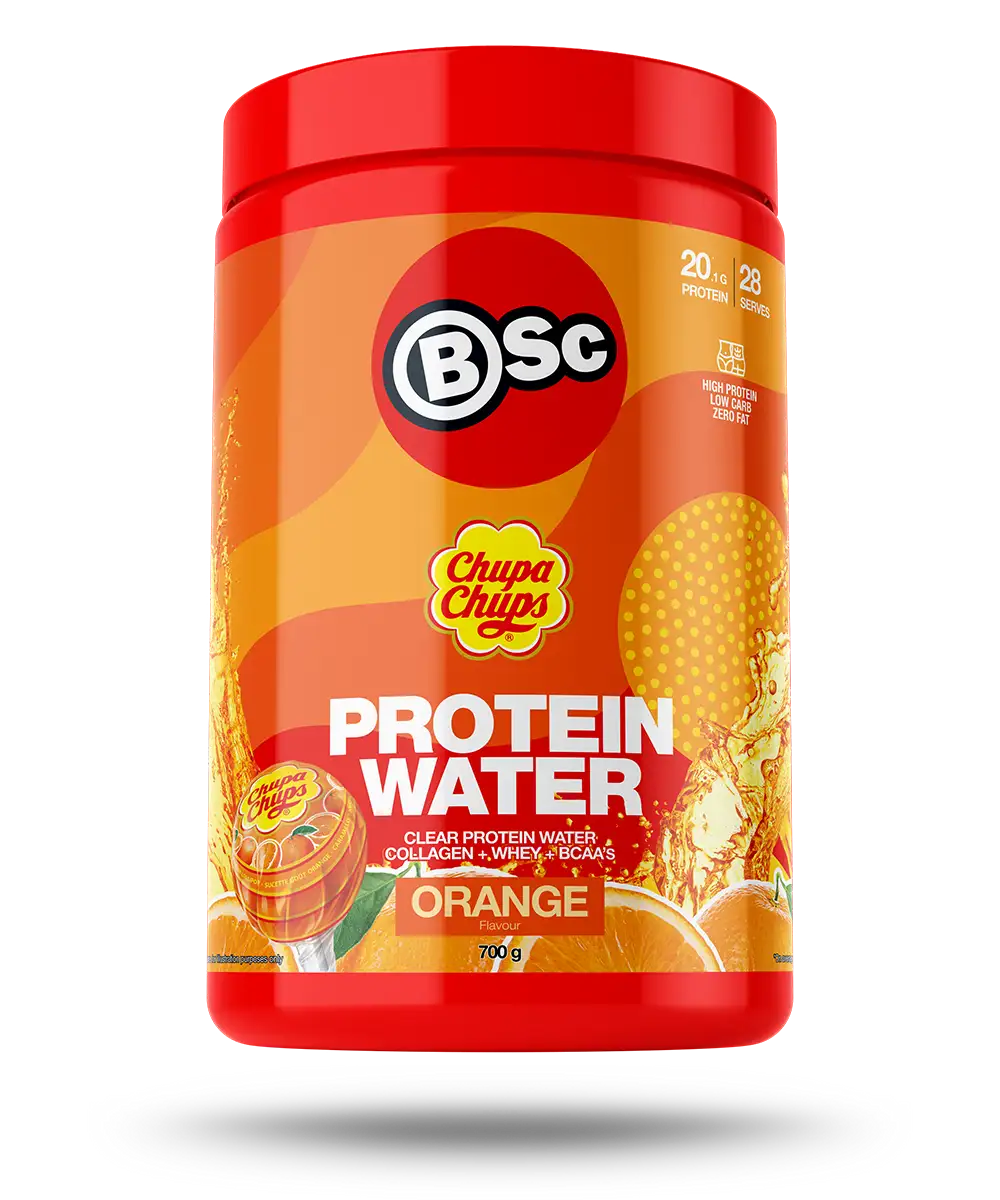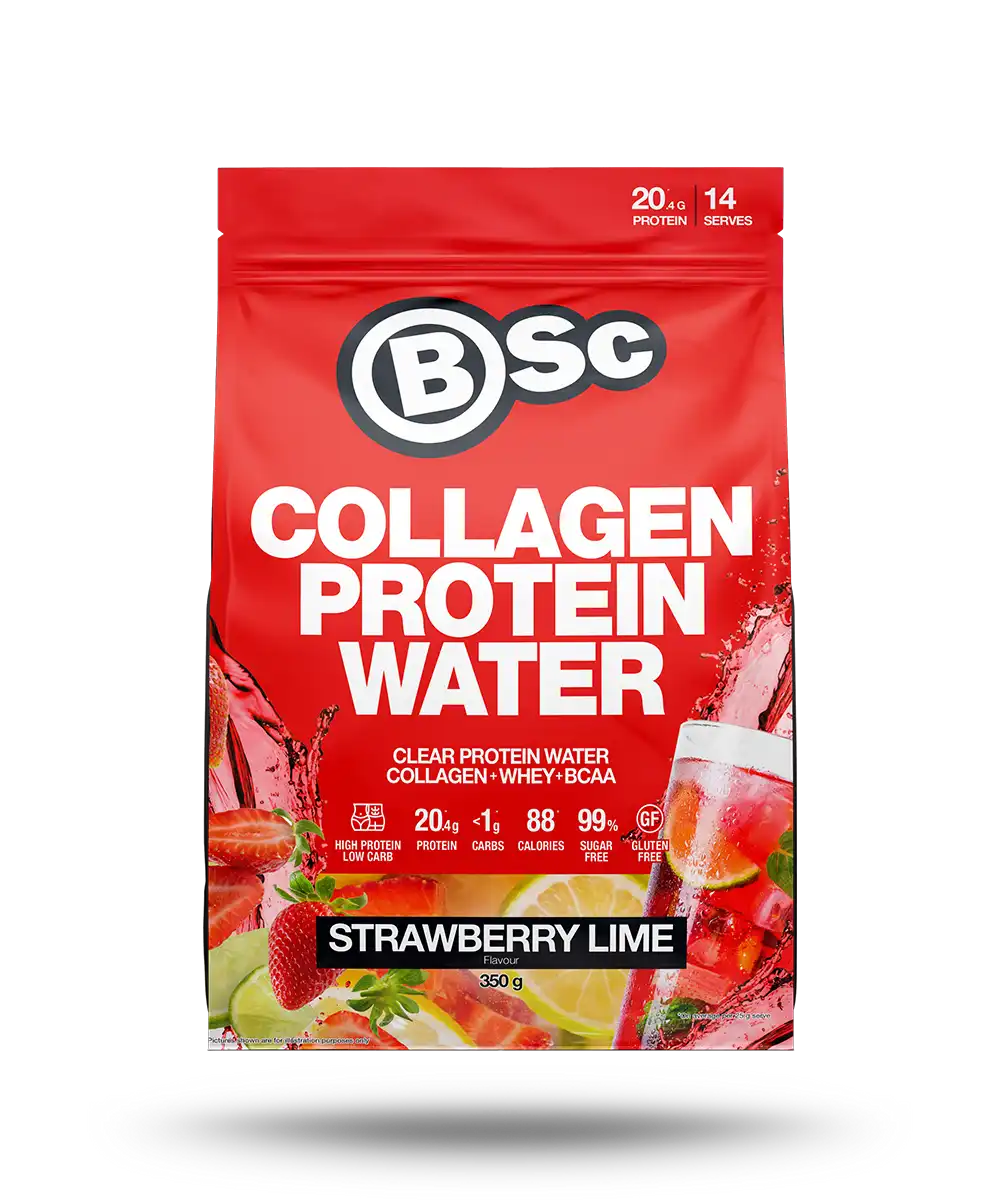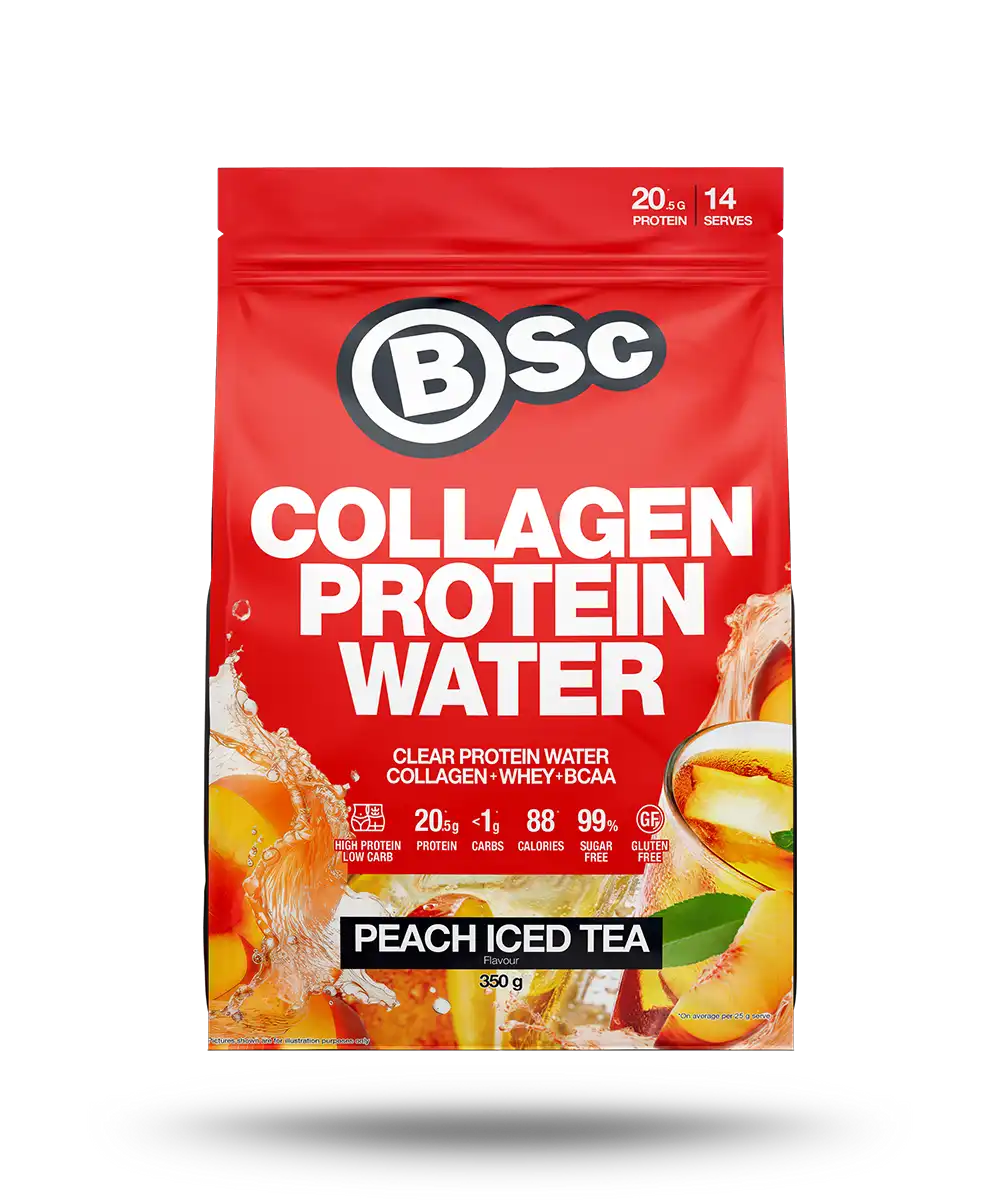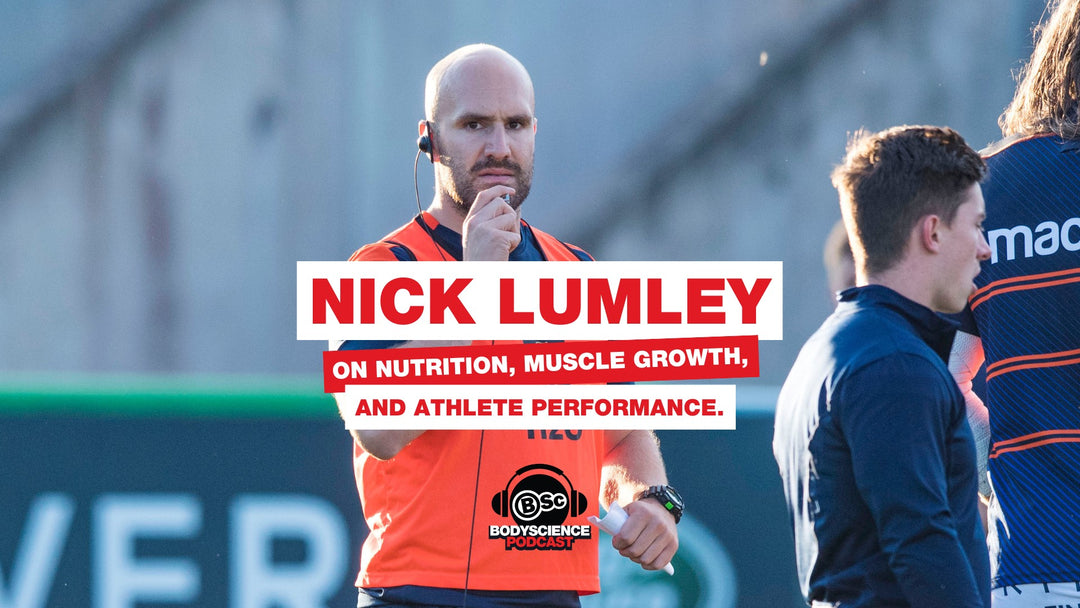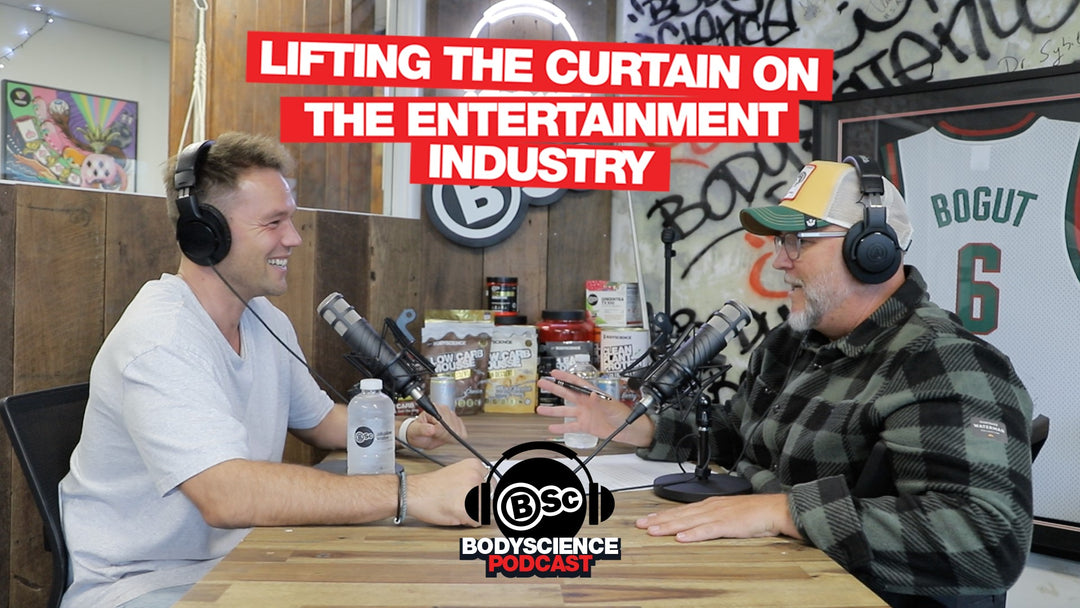Collagen, collagen peptides, and collagen hydrolysate. If you’re into your supplements, you’re likely familiar with these three terms. Wondering how they relate to one another? We’ve got you covered. In this guide, we unscramble the collagen jargon so you can kickstart your supplementation journey with all the right information.
Table of Contents
What Is Collagen?
The Low Down On Collagen
What Are Collagen Peptides?
What’s The Difference Between Collagen and Collagen Peptides?
What Are The Benefits Of Collagen Peptides?
Are Collagen Peptides And Collagen Hydrolysate The Same Thing?
Can You Mix Collagen Peptides With Protein Powder?
Benefits Of Mixing Collagen Peptides With Protein Powder
You’ll Be Consuming All Essential Amino Acids
- You’ll Hit Your Daily Protein Intake With Ease
It Keeps Things Simple
Key Takeaways
The Low Down on Collagen
We’ll start with a quick refresher on collagen.
Collagen is essentially the protein that holds us together. It sets up the structure of our cells and tissues, making up 25 – 30% of the protein in our bodies. It can be found in the bones, muscles, skin, and tendons. We’re made up of approximately 28 types of collagen, but types 1, 2, and 3 are the most prominent.
Collagen is composed of three main amino acids — glycine, proline, and hydroxyproline. Collagen occurs naturally in our bodies and can be sourced from our diet through foods such as fish, meat, bone broth, egg whites, and citrus fruits. Collagen can also be taken in supplement form.

What Does Collagen Do?
Collagen is basically one of our body’s protein heroes. It plays a very important part in repairing tissue, enhancing our immune system defences, and improving the function of our cells. Collagen can be found in the extracellular matrix, which is an intricate mesh-like network that forms the structure of our bodily tissues, such as the skin.
As we age, the production of collagen in our bodies slows, which causes a decline in the hydration and elasticity of our skin. We may also experience joint pain and bone density loss due to the decreasing levels of collagen in our bodies.
What Are Collagen Peptides?
Now that we know what collagen is, let’s take a look at collagen peptides.
Collagen is a full-length molecule. Collagen peptides, on the other hand, are short chains of amino acids that are formed when these full-length molecules are broken down.
What’s The Difference Between Collagen and Collagen Peptides?
Collagen is the primary extracellular protein that can be found in our ligaments, tendons, and skin. Collagen peptides are short chains of bioactive peptides which are produced when the enzymatic hydrolysis of collagen occurs. Collagen peptides are constructed from the same amino acids as collagen but have different properties.
Essentially, collagen in its natural form is too large to be absorbed properly and put to use throughout the body. It is indigestible and insoluble and often appears in the form of sponges for large wounds and medical materials.
The collagen peptides derived from full-length collagen molecules are soluble and digestible. Once they’re absorbed into the bloodstream, collagen peptides travel through the body and are responsible for actively repairing our skin, bones, and joints, as well as delivering energy to our cells.
What Are The Benefits Of Collagen Peptides?
Increasing our intake of collagen peptides through supplementation has shown to have a number of benefits, including:
-
Skin Benefits – collagen helps to keep our skin hydrated and elastic. Taking a collagen supplement can help to ensure our skin retains its structure, especially as we age.
-
Muscle Mass Benefits – collagen is a vital component of the skeletal muscles. It can help to increase muscle mass in older people who may suffer from sarcopenia, the ageing-induced loss of muscle mass.
-
Heart Health Improvement – research has shown that collagen can prevent heart disease by stopping the arteries from narrowing. Collagen has also been shown to increase ‘good’ cholesterol, which is important for our heart health.
-
Joint Pain Reduction – as we age, pain and inflammation in the joints can occur as a result of decreasing collagen. A collagen supplement may help to protect the joints by maintaining the structure of the cartilage in our joints.
-
Bone Loss Prevention – collagen supplements may prevent bone breakdown and slow down the process of bone loss as we age.
Are Collagen Peptides and Collagen Hydrolysate the Same Thing?
Yes. Collagen peptides and collagen hydrolysate are interchangeable terms — they refer to the same thing. Full-length collagen is broken down into peptides through the process of hydrolysis, which explains the alternate name of collagen hydrolysate. Can You Mix Collagen Peptides With Protein Powder? If you’ve already worked out how to incorporate protein powder into your diet, you may be wondering if you can mix collagen peptides with protein powder. After all, a person can only consume so many protein shakes in one day. You can absolutely mix collagen peptides with protein powder. In fact, many experts suggest that you should.
Can You Mix Collagen Peptides With Protein Powder?
If you’ve already worked out how to incorporate protein powder into your diet, you may be wondering if you can mix collagen peptides with protein powder. After all, a person can only consume so many protein shakes in one day. You can absolutely mix collagen peptides with protein powder. In fact, many experts suggest that you should.
Benefits Of Mixing Collagen Peptides with Protein Powder
There are a number of benefits to mixing collagen peptides with protein powder.

You’ll Be Consuming All Essential Amino Acids
Consuming collagen on its own won’t provide you with optimal muscle growth and recovery because it isn’t a complete protein.
Complete proteins contain nine essential amino acids that our bodies can’t produce on their own. All nine amino acids are needed to effectively build and repair the tissues in the body.
Protein powders, including whey protein and vegan protein powder blends, are considered complete proteins. Mixing collagen with protein powder is a great way for you to complete the collagen protein and absorb all essential amino acids.
You’ll Hit Your Daily Protein Intake With Ease
By adding collagen to your protein shake, you’ll hit your daily protein goal with a little less fuss. You’ll be able to boost your protein intake without having to add in an extra protein-rich meal or snack.
It Keeps Things Simple
Both collagen peptides and protein powders can be mixed into liquids. Combining the two conveniently cuts down the number of shakes you need to consume within the day. Both collagen and protein powders are well-tolerated and digestible too, so you’re unlikely to have any digestive issues when combining the two. Keep in mind that whey protein contains dairy, so our vegan and lactose-intolerant friends may need to find an alternative. To read more about vegan alternatives to whey protein, visit our article.
Key Takeaways
- Collagen makes up one-third of the protein within our body.
- Collagen peptides are short chain amino acids that have been broken off from the full-length collagen molecule. These smaller peptides are better absorbed within the body and are sent to repair our bones, skin, and joints, as well as deliver energy to our cells.
- Collagen peptides and collagen hydrolysate are the same and the terms can be used interchangeably.
- To get the most out of your collagen peptides, it’s a good idea to combine your supplement with a complete protein powder. This will ensure you’re receiving all nine essential amino acids, which will ensure your body is effectively building and repairing its tissue.
Discover our range of collagen supplements.
